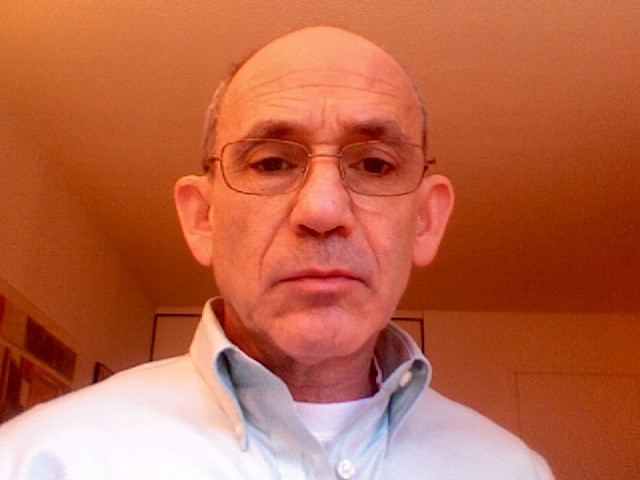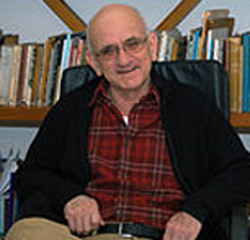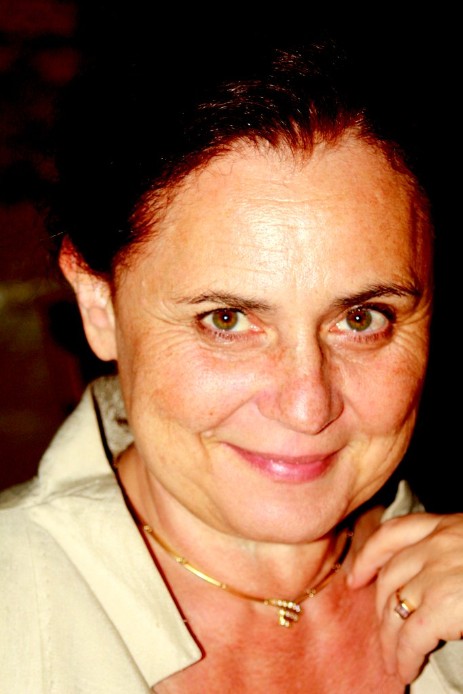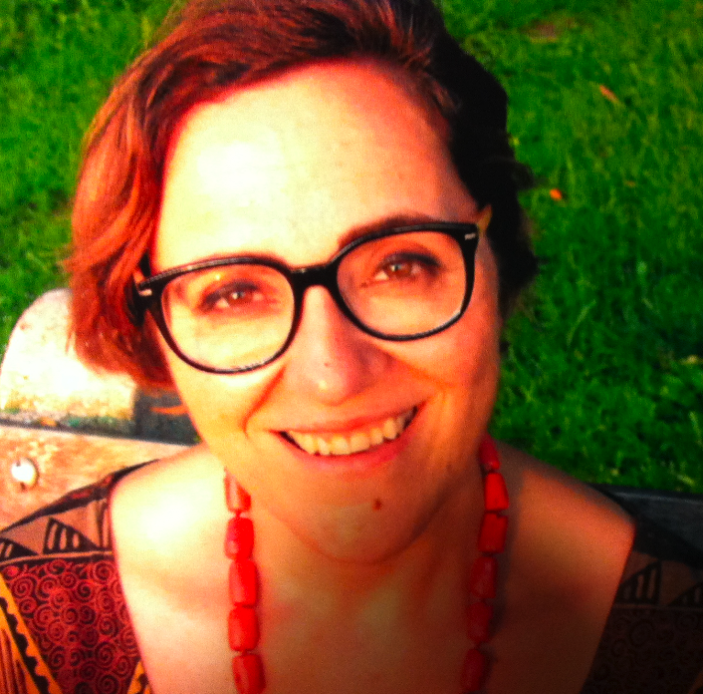Ferenczi in Firenze ENG - Carlo Bonomi psicologo Firenze
Main menu:
Ferenczi in Firenze ENG
FERENCZI > Summer Course 2017
FERENCZI IN FIRENZE July 8-12, 2017
Saturday July 8, 9am-1pm
JAY FRANKEL
Ferenczi's Key Concept of Identification with the Aggressor
Sunday July 9, 9am-1pm
EMANUEL BERMAN
A Generative Dyad: The Interaction of the Personal and the Theoretical in the Freud - Ferenczi Relationship
Monday July 10, 9am-1pm
JUDIT MÉSZÁROS
Trauma and Resilience: How Ferenczi's New Approach Influenced Psychoanalysis
Tuesday July 11, 9am-1pm
ARNOLD RACHMAN
The Resurrection of Elizabeth Severn: Ferenczi's Analysand and Mutual Analytic Partner
Wednesday July 12, 9am-1pm
CLARA MUCCI
Resilience after Massive Trauma, or How do We Counter the End of Civilization?
Applications (name, affiliation, and a short professional CV) should be sent to ferencziinfirenze@gmail.com
Registration fees: € 500
The fees should be paid to the International Sándor Ferenczi Network via PayPal after the application is accepted.
(Note: Hotel accommodation, social dinner, art and food tour are not included and have to be paid directly to the providers of the services).
Reimbursement policy: Registered persons who cannot attend may ask for the reimbursement of € 400 (out of 500) before June 1, 2017.

Ferenczi in Firenze is a Summer course organized in collaboration with the Ferenczi House in Budapest which will combine the pleasure of a vacation in Tuscany and the chance to study Sándor Ferenczi’s contributions to psychoanalysis.
The course will take place in the same venue where the next International Sándor Ferenczi conference (Florence, May 3-6, 2018) is scheduled to meet, an ancient 14th-century Hospital which has been transformed into a hotel and meeting center (http://www.calza.it/en/home.html).
The course is for about 20 clinicians and includes:
Five seminars
Two art tours of the city of Florence
A Florence food tour
A social dinner
Hotel accommodation at the Convitto La Calza
Participants will receive in advance a suggested bibliography for each seminar.
Language: English/Italian simultaneous translation
The Director of the course is Carlo Bonomi.
Structure of the seminars
- 9am-10am Lecture
- 10am-11am Lecture
- 11.30am-12am Panel by participants
Participants are invited to present clinical vignettes, problems or short contributions that fit the topic of the main lecture.
- 12am-1pm Group discussion
Admission
Only members of the International Sándor Ferenczi Network can take part in the courses. Applicants are invited to become members (yearly membership € 30). Instructions can be found on the web page www.sandorferenczi.org/become-a-member/
Hotel accomodation (suggested)
Convitto La Calza (http://www.calza.it/en/home.html), close to the Boboli Garden, Pitti Palace and the Ponte Vecchio. Piazza della Calza 6, 50121 Firenze, Italy Tel. + 39 055/23.06.140 - Fax + 39 055/22.39.12
Rates: Single room € 90,00 Double room € 105,00 (breakfast and taxes included). Participants should make directly the hotel reservation (inclusive of the payment of 1 night) at the Convitto La Calza.
Contact Person: Rachele Taddeucci <t.rachele@calza.it>
Art tour in Florence
- Florentine Last Suppers and Cloisters
An itinerary that takes you to the centre of the spiritual life in Renaissance Florence: the unique tradition of the Last Suppers; the sacred stories represented on the walls of the cloisters, spaces of beauty and meditation; the masterpieces of the most important Italian artists from fifteenth and Sixteenth Centuries - Beato Angelico, Paolo Uccello, Andrea Del Sarto, Ghirlandaio...
- Bargello National Museum
The oldest public building in Florence, a fortress with its magnificent courtyard, the Loggia, the Salone del Consiglio; nowadays home to the most remarkable collection of Renaissance sculpture in Italy: Michelangelo, Donatello, Cellini, Verrocchio, Luca Della Robbia, Giambologna, and many other masters. The tours are conducted by a professional tour guide.
The dates will be planned in agreement with the participants.
- Contact person: Francesco Gigliotti <francesco.gigliotti@gmail.com>
Florence food tour
The food tour provides an overview of the history, origin and method of production of the different traditional Tuscan and Italian foods as well as how these foods are included in the daily Florentine diet. This is why the food tour also includes a visit and tasting at the local food market. Furthermore the clients will be provided with suggestions and recommendations about local restaurants and shops where they can find high quality foods and only local customers. The main idea of the tour is to give an internal perspective of how food is viewed, lived and perceived by Florentines and how to avoid the many tourist traps. The food tour consists of a tasting of typical pastries, different cheeses and cold cuts, a tasting at the bakery, then olive oil, balsamic vinegar, truffle, and different kinds of wine, chocolate and gelato. All the tastings take place in historical and little gourmet shops in the city center. A tour lasts around 3-4 hours and can be adapted to the client preferences and specific needs. The tour can be adapted to the client preferences and specific needs.
The dates will be planned in agreement with the participants.
- The tour is conducted by Karin Pantzer, MA in History and culture of food at Bologna University. Price: € 85 (wines included). Contact person: Karin Pantzer <karinpantzer@gmail.com>
Social dinner
- July 9 2017



JAY FRANKEL
Ferenczi's Concept of Identification with the Aggressor
Ferenczi's conception of identification with the aggressor (IWA)—at the heart of his trauma theory—starts with his revolutionary reconceptualization of the traumatic situation. Ferenczi included subtle assaults as traumatic and also stressed the role of "hypocrisy"—when adults deny the abuse or blame the child—as leaving the child unbearably isolated and as the most damaging element.
The IWA response to trauma involves finely tuned submission/compliance with the aggressor's demands, not just in outer behavior but inwardly (on a mental level of thought, perception, and feeling) and morally (in terms of readily blaming oneself and losing a sense of goodness and wholeness). Compliance is both a survival tactic and a way for the child to continue to feel a sense of belonging in the family. The inner accommodations of IWA help insure that the child plays her role effectively. Indeed, IWA is closely intercoordinated with dissociation and introjection.
IWA often turns into a persisting tendency to accommodate and to blame oneself. And the internal distortions it engenders undermine the child's capacity to think independently and to psychologically separate. This leads the person to lose the feeling of goodness and wholeness, a sense of inner authenticity and of agency. These losses are compensated in some people by an overinflated narcissistic response which may, ironically, facilitate submission.
Consistent with a broader understanding of the traumatic situation, IWA seems to be a widespread tendency under certain circumstances—not limited to people who have been grossly abused. This observation opens new perspectives on a great many patients who have not been grossly traumatized. It also makes IWA a valuable tool for understanding large-scale social phenomena involving submission and compliance. As Ferenczi first observed (and experienced), IWA also often plays a central role in structuring the analytic relationship for both patient and therapist and is also pivotal for understanding and working through clinical impasses. Ultimately, IWA provides the basis for a new, more mutual conception of the analytic relationship.
Jay Frankel, Ph.D., is an Associate Editor of Psychoanalytic Dialogues; Adjunct Clinical Associate Professor, and Clinical Consultant, in the New York University Postdoctoral Program in Psychotherapy and Psychoanalysis; and Faculty at the Institute for Psychoanalytic Training and Research, and the Trauma Treatment Training Program at the Manhattan Institute for Psychoanalysis, both in New York. He is a co-editor of an upcoming Karnac book on Ferenczi, co-author of Relational Child Psychotherapy (2002, Other Press) and author of dozens of journal articles and book chapters on trauma, identification, the therapeutic relationship, play and psychoanalysis and politics.
EMANUEL BERMAN
A Generative Dyad: The Interaction of the Personal and the Theoretical in the Freud-Ferenczi Relationship
This seminar will explore the Freud-Ferenczi relationship from 1908, when the two met, until 1933, when Ferenczi died. Its main themes will be the fertile mutual influence between the two and the close interaction between the personal level of the relationship (Freud as Ferenczi's friend, colleague, teacher and analyst) and its theoretical level, which helped both to develop their models. The seminar will be based on reading and discussion of selected Ferenczi papers, selected Freud-Ferenczi letters and some segments of the Clinical Diary. The aim is to encourage open discussions of the texts by the group. The workshop will advance chronologically through:
1908-1918, including the Elma affair and Ferenczi's analysis
1919-1925, including exploration of countertransference and the active technique
1926-1931, including the elasticity and relaxation phase
1932-1933, including the Clinical Diary and the Confusion of Tongues paper
Emanuel Berman, Ph.D., is a training and supervising analyst at the Israel Psychoanalytic Society; Chief International Editor of Psychoanalytic Dialogues and Professor Emeritus of Psychology at the University of Haifa. He has edited Hebrew translations of Freud, Ferenczi, Balint, Winnicott, Ogden, Britton and others.
JUDIT MÉSZÁROS
Trauma and Resilience: How Ferenczi’s New Approach Influenced Psychoanalysis?
Ferenczi introduced new perspectives on trauma. Why do we call this a paradigm shift and what are its main elements? Ferenczi placed trauma within an interpersonal and intrapsychic sequence of processes and opened up a new perspective toward dimensions of object relations. He also described the different ego-defence mechanisms, which differ for victim and aggressor, and introduced a new discovery: identification with the aggressor. This last mechanism entered public consciousness under the rubric of the “Stockholm Syndrome”. Ferenczi emphasised that trauma is a real event, not reducible to a fantasy which caused trauma. What is the meaning of the “pleasure principle” (Ferenczi, [1932] 1980) in trauma? How could this Janus-faced phenomenon exist? Suffering, on the one hand, and experiencing pleasure, on the other? What is the consequence of this antagonistic process? There will also be discussion of the question of how psychoanalysis found its way from ‘traumatic progression’ or ‘precocious maturity’, as described by Ferenczi with its background in the ‘wise baby’ phenomenon, to research on resilience? What contribution did ego psychology, object relations and attachment theories, self-psychology and group experiences contribute to understanding resilience? Results concerning resilience are based on longitudinal studies of early hospitalised or traumatised patients, resilient children’, child survivors of genocides, wars and communal violence, populations of children and adult refugees.
We will discuss the different approaches to resilience, from factorial components to views of structures and processes, including new ideas that theorize resilience and depletion as phenomena at the two ends of the same continuity of structural dimensions: psychobiological and object-relational. Ferenczi’s new approach to trauma theory marks his crowning achievement and led to new ideas that would later emerge in the complex system of modern trauma theory and therapy.
Judit Mészáros, Ph.D. is a training and supervising analyst of the Hungarian Psychoanalytical Society and member of the Training Committee. She is Honorary Professor at the Eötvös Loránd University, and a Board Member at the European Psychotherapy Training Institute, Budapest. She has written scores of theoretical and clinical papers and is the editor and author of several books, including the recently published: Ferenczi and Beyond. Exile of the Budapest School and Solidarity in the Psychoanalytic Movement during the Nazi Years. Karnac, 2014. She is president of the International Sándor Ferenczi Foundation and the Ferenczi Society.

ARNOLD RACHMAN
The Resurrection Of Elizabeth Severn: Ferenczi's Analysand and Mutual Analytic Partner
Elizabeth Severn was called an "evil genius" by Freud. He felt she was leading Ferenczi away from traditional psychoanalysis. Consequently, she was condemned by the orthodox analytic community and removed from psychoanalysis as a meaning figure. The acquisition of The Elizabeth Severn Papers from the estate of her daughter, Margaret Severn and the discovery of a previously unknown interview of Severn by Kurt Eissler provide new, important date to re-evaluate Severn's functioning when she was in analysis with Ferenczi (1928-1933) and after the analysis (1933-1959). In a new book, entitled, Elizabeth Severn, The Evil Genius Of psychoanalysis published by Routledge Press, London, Severn emerges as not only as Ferenczi's mutual analytic partner in the study and treatment of trauma, but, an important figure in the history of psychoanalysis.
Arnold Wm. Rachman, PhD., FAGPA, is a Member-Board of Directors, The Sandor Ferenczi Center of the New School for Social Research, New York City; Honorary Member- The Sandor Ferenczi Society, Budapest Hungary; Donor- The Elizabeth Severn Papers, The Library of Congress, Washington, D.C.. Author- Sandor Ferenczi: The Psychotherapist of Tenderness and Passion (1997); Psychotherapy of Difficult Cases (2003); Analysis of the Incest Trauma, with Susan A. Klett (2015); The Budapest School of Psychoanalysis (2016).

CLARA MUCCI
Resilience after Massive Trauma, or How Do We Counter the End of Civilization?
In the seminar we will develop and focus on these central points and issues:
1: The difference between real trauma (as in Ferenczi) and fantasied trauma (as in Freud's development). In fact we owe to Ferenczi, as a result of his disagreements with Freud, an understanding of trauma as a real event or series of events impacting the psyche of the subject. This contrasts with a view of trauma rooted mostly in fantasmatic and intrapsychic elements (see Freud's revision of the "seduction theory"). This has led contemporary clinicians and thinkers to reconsider the historicization and reconstruction of traumatic events on both an individual and a collective scale (Grubrich-Simitis, Bohleber, Mucci).
2: As a consequence of point 1, the recognition and real empathic appreciation of the dynamics of interpersonal real (both precocious maltreatment and abuse, and massive social trauma, such as war or genocide) undergone by the "victim" led Ferenczi to an understanding of two major outcomes: a, what he calls the "fragmentation" of the psyche of the subject, what nowadays we describe psychologically and neuroscientifically as "dissociation", b, the process of what he terms, the "identification with the aggressor", which means taking in not only the aggressiveness of the perpetrator (a fundamental tool in the repetition of violence) but also the split-off sense of guilt the aggressor embodies without awareness. The psychodynamics of the identification with the aggressor both individually and in group dynamics has been described as a basic reason for destructiveness against the self and also for the perpetration of violence against groups identified as enemies in a paranoid/perverse attitude (see, with different approaches, Frankel, Volkan, Kernberg).
3: Point 1 and 2 lead in turn to an understanding of the psychotherapeutic practice as a kind of testimonial activity based on an empathic attitude or what Ferenczi calls a benevolent and helpful therapist, in contrast to Freud's rather unsympathetic attitude. In fact since the identification with both victim and persecutor in the subject who has undergone interpersonal trauma might lead to an intergenerational transmission of violence, with mechanisms of both revictimization and aggressive repetitions, it is only through the work with the traumatized individual in a totally empathic way and a restorative, reparative kind of practice that the "victim" can achieve empowerment and, crucially, reconnect to a collectivity. Against the end of civilization, against aggressiveness and dehumanization, we want to posit empathy, resilience, humanization, working through of mourning and loss, the strength of art and beauty and the rejuvenating power of "forgiveness", as the giving up, after deep therapeutic work, of the identifications any traumatized being has inside with both victim and persecutor.
Clara Mucci is Full Professor of Clinical Psychology at the University of Chieti (Italy). She previously served as Full Professor of English Literature and Shakespearean Drama. A psychoanalytic psychotherapist for the SIPP, (Italian Society of Psychoanalytic Psychotherapy), in private practice in Milan and Pescara, she is the author of several monographs on English Literature, Shakespeare and Literary theory (Liminal Personae, 1995; Tempeste, 1998; Il teatro delle streghe, 2001; A memoria di donna, 2004; I corpi di Elisabetta. Sessualita' potere e poetica della Cultura al tempo di Shakespeare, 2009) and on trauma and the Holocaust (Il dolore estremo, 2008; Beyond Individual and collective Trauma. Psychoanalytic Treatment, Intergenerational Transmission and the Dynamics of Forgiveness, 2013; Trauma e perdono, 2014).
JONATHAN SKLAR
Ferenczi, Fundamentalism and Alterity in today’s Europe
I want to offer a political -cultural discourse on the darkening times in Europe. Alterity - a Ferenczian view of hate and prejudice. Listening to the doctor’s impossible patient through the perspective of the doctor’s problem brings the value of the countertransference to bear in understanding the clinical encounter. The Hungarian tradition from Ferenczi to its present day applications that Balint brought to London will be discussed with many clinical examples as a way of embedding psychoanalysis in medicine and the body.
Jonathan Sklar is a Training Analyst and Fellow of the British Psychoanalytic Society. He is in full time analytic practice in London. He teaches and supervises annually at the Institute of Psychoanalysis and runs a course on ‘Ferenczi and Contemporary Psychoanalysis’. He teaches in Chicago, has convened a psychoanalytic conference in Cape Town (South Africa) for the last decade and has also taught extensively in Eastern Europe. He was Vice President of the European Psychoanalytic Federation from 2007 to 2011 and is currently on the board of the IPA.He published Landscapes of the Dark-history, Trauma, Psychoanalysis (Karnac 2011). His latest book, to be published by Karnac in 2016, is Balint Matters: Psychoanalytic Dynamics for the Art of Assessment.
CARLO BONOMI
Director of the Program
Carlo Bonomi, PhD (in Philosophy and Psychology), is a psychoanalyst in private practice in Florence, Italy. He has been particularly active in the contemporary psychoanalytic movement and, together with Judit Mészáros, cofounded the "Ferenczi House project" in 2006. The project led to the acquisition of the home and office where Ferenczi wrote his Clinical Diary in Budapest. With Franco Borgogno he established the Associazione culturale Sándor Ferenczi in 2007 and participated in the establishment of the International Sándor Ferenczi Network (ISFN) in 2015. He is President of the Network and Chair of the upcoming International Sándor Ferenczi Conference, to be held in Florence on May 3-6 of 2018. He has published numerous psychoanalytic papers and is the author of The Cut and the Building of Psychoanalysis. Volume 1. Sigmund Freud and Emma Eckstein (Relational Perspectives Book Series), London: Routledge (2015) and of the forthcoming Volume 2. Sigmund Freud and Sándor Ferenczi.

The FERENCZI HOUSE
Through an international effort and the donations of hundreds of psychoanalysts throughout the world, the Ferenczi Society and the International Ferenczi Foundation purchased in 2011 the apartment that served as Ferenczi’s office within his villa. Sándor Ferenczi purchased this villa in 1930 where he completed his most widely cited publication “Confusion of Tongues between Adults and the Child”. It was within the walls of this house that Ferenczi also wrote the final letters of his correspondence with Freud, Groddeck and Jones, as well as his notes for his Clinical Diary. It was also in this villa that he treated his most famous American patients, among them Elizabeth Severn, Isette de Forest and Clara Thompson, who later became one of the founders of the William Alanson White Institute in New York. Ferenczi’s studies helped him to better understand the interplay of interpersonal and intrapsychic processes during analysis, and inspired new discoveries. The Ferenczi House represents a “site of memory” which forms identity and where memory is captured by history. The House also links Ferenczi’s heritage and our contemporary knowledge of psychoanalysis through lectures, seminars and other activities. The Ferenczi House Archives, in the process of being developed, offers materials for researchers. The Ferenczi House became part of a broader international network in 2015. The International Sándor Ferenczi Network has the task of organizing an International Conference on Ferenczi every three years.